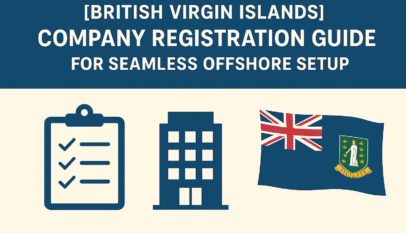
Business funding is essential for starting, growing, or sustaining any enterprise. It can come from various sources, including government grants, loans, private investors, and bank financing. The best business funding option depends on the business’s needs, size, and stage of development, as well as the purpose of the funds.
Many governments offer targeted grants and subsidies designed to support specific industries or demographics, such as agriculture, arts, or Indigenous entrepreneurs. Loans and credit remain popular choices for many small and medium-sized businesses due to their flexibility and access through financial institutions.
Understanding the available funding types and eligibility criteria can help businesses secure the right support to fuel growth or innovation. Exploring a mix of government programs, commercial loans, and other financing sources provides a balanced strategy for effective capital raising.
Understanding Business Funding
Business funding involves securing financial resources needed to start, operate, or grow a company. These resources come from a variety of sources, each with specific requirements and conditions. Choosing the right type and understanding eligibility can significantly impact a business’s success and growth.
Types of Business Funding
Business funding generally falls into two categories: debt and equity. Debt funding includes loans from banks, credit unions, or government programs, which must be repaid with interest over time. This is a common choice for startups needing capital without diluting ownership.
Equity funding involves selling shares of the business to investors, such as angel investors or venture capitalists. Unlike loans, equity investors take an ownership stake and share in the risks and rewards.
Other types include grants, which do not require repayment but have strict eligibility requirements, and crowdfunding, where many people contribute small amounts online. Each type has different costs, risks, and implications for control and future financing.
Eligibility Criteria for Funding
Eligibility varies widely depending on the funding source. For bank loans, businesses usually need a strong credit history, a solid business plan, and proof of consistent revenue. Lenders often require collateral or personal guarantees.
Government grants typically target specific industries, locations, or business sizes. For example, programs like the Small Business Boost Program require businesses to participate in technical assistance to qualify.
Equity investors look for businesses with growth potential, a clear value proposition, and a strong management team. Startups with innovative products or scalable models are more likely to attract venture capital.
Traditional vs. Alternative Funding Sources
Traditional funding primarily includes bank loans and government grants. These sources generally offer lower interest rates and longer repayment terms but require detailed application processes and often collateral.
Alternative funding options include crowdfunding, peer-to-peer lending, and invoice financing. These are more accessible for businesses without extensive credit history or collateral but often come with higher costs and shorter terms.
Businesses seeking faster funding or less stringent requirements may prefer alternative sources. However, they must weigh these benefits against higher fees and potential impacts on cash flow or ownership.
Securing and Managing Funding
Securing funding requires careful preparation and understanding of the application process, funding agreements, and how to present the business effectively. Managing funding well depends on grasping terms and conditions and building a credible case that meets the expectations of lenders or investors.
Application Process
The application process begins with assessing the business’s financial needs and choosing the right type of funding. This often involves collecting detailed financial statements, business plans, and projections.
Applicants should prepare clear documentation, including cash flow forecasts and credit histories. Many lenders also require explanations of how the funds will be used and repayment plans.
Submitting a complete and accurate application increases the chances of approval. Follow-up communication is crucial to address any additional questions or documentation requests promptly.
Funding Terms and Conditions
Funding agreements typically specify interest rates, repayment schedules, fees, and collateral requirements. Businesses must carefully review these terms to understand financial obligations clearly.
Some loans have fixed interest rates, while others have variable rates that can increase costs. Early repayment penalties or fees should also be considered.
Terms may include covenants or performance benchmarks the business must maintain. Failure to meet these can trigger penalties or loan recalls. Negotiating flexibility within terms can protect the business’s cash flow.
Building a Strong Business Case
A strong business case focuses on demonstrating the viability and growth potential of the enterprise. It must include clear financial projections, market analysis, and competitive advantages.
Lenders and investors want evidence of reliable revenue streams and the ability to service debt. Including contingency plans and risk assessments shows preparedness.
Effective presentations use concise data and visuals like graphs or tables to clarify financial forecasts. Confidence and transparency build credibility, helping secure favorable funding terms.
British Virgin Islands Company Registration Guide for Seamless Offshore Setup
Registering a company in the British Virgin Islands (BVI) is a straightforward process tha…









